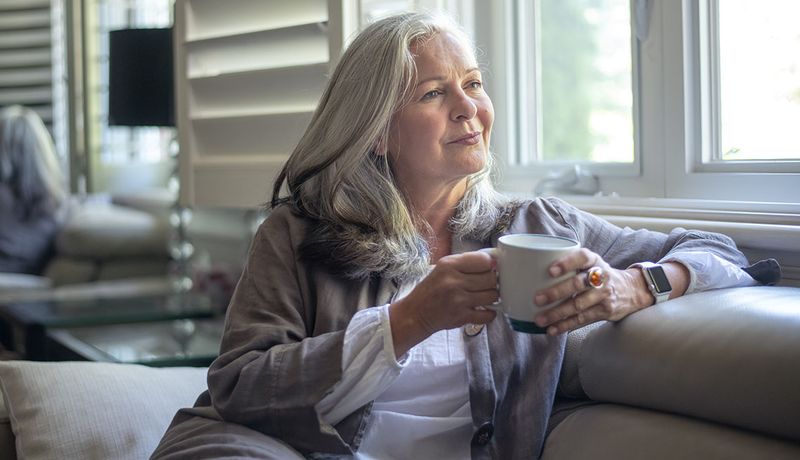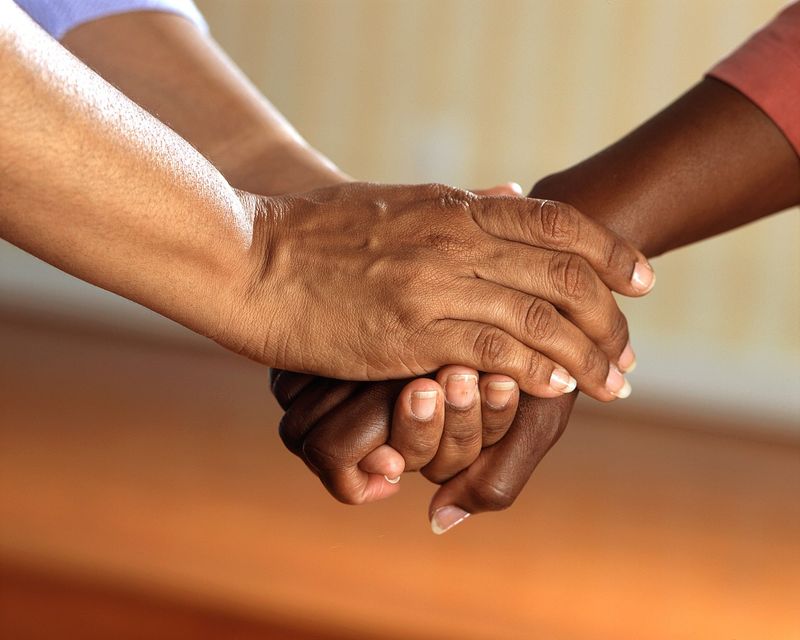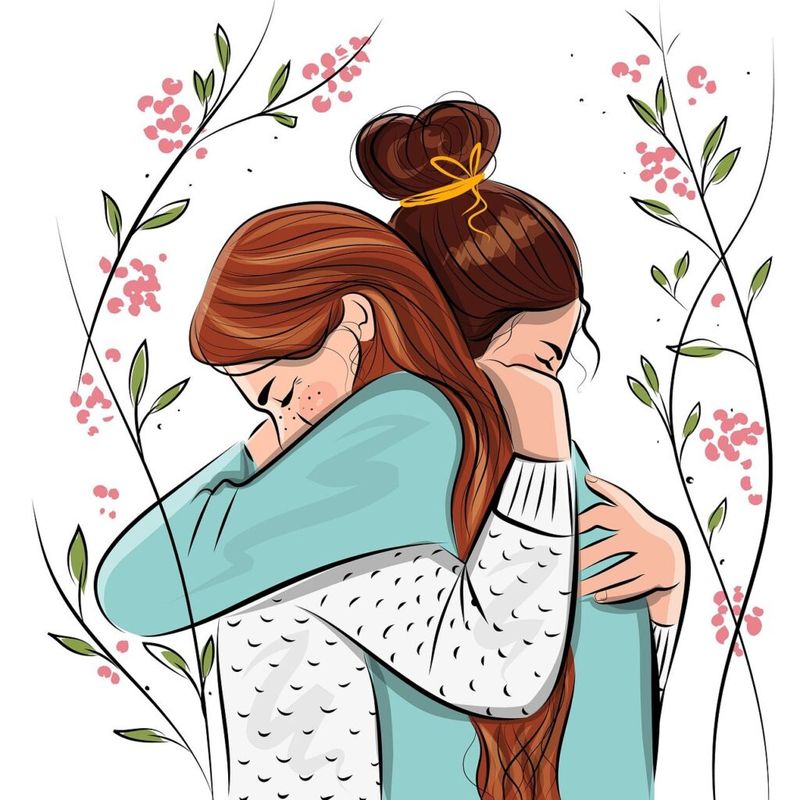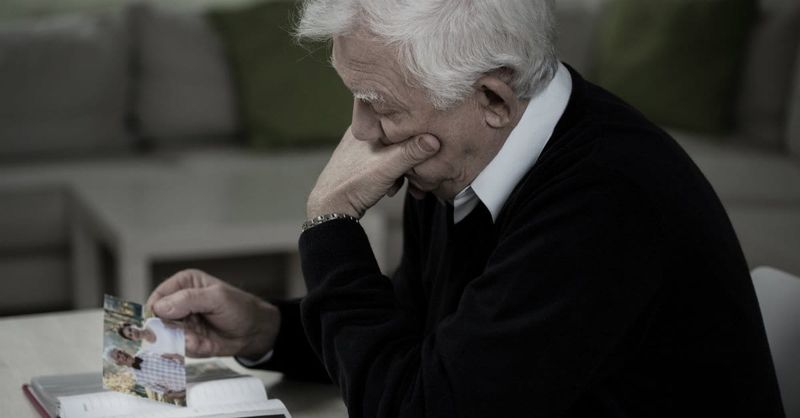20 Things Grieving Widows And Widowers Often Regret Doing Too Soon
Grief can make you feel restless, like you have to do something to survive the ache, even if your heart isn’t ready. And in the early days, you just want something—anything—to make the ache hurt a little less.
But in that blur of decisions, distractions, and survival mode, there are things many widows and widowers look back on with a quiet whisper: “I wish I’d waited.”
1. Packing up their clothes too quickly

The silence that followed felt worse than the clutter. Clothes, once a comforting reminder of their presence, become objects of intense emotion when hastily put away. It’s common to think clearing space will clear the heart, but the absence can amplify loneliness.
Each garment tells a story of shared moments, and packing them up can feel like erasing those memories. Giving away beloved items too soon might lead to a longing for their familiar scent or the way they hung in the closet.
Taking time allows grieving hearts to adjust. Sometimes, leaving a favorite shirt draped over a chair eases the transition. Consider setting aside a few cherished pieces, turning them into a quilt or pillow for comfort. This gentle homage can provide solace, keeping their essence close, without the abruptness of an empty closet.
2. Saying “yes” to every invitation to avoid the loneliness

Distraction isn’t the same as healing. Attending every event can feel like battling isolation, yet constant socializing may lead to emotional exhaustion. The noise often drowns out what truly needs attention—the silent grief lurking beneath the surface.
Saying ‘yes’ might temporarily fill the void, but it doesn’t address the heart’s needs. It can become overwhelming, masking the true emotions that need acknowledging and processing.
It’s okay to be selective. Choose gatherings that nurture rather than drain. Sometimes, quiet evenings with close friends or family provide more healing than a crowded room. Allowing oneself to decline invitations respects personal boundaries and honors the grieving process, making room for genuine connection and introspection.
3. Jumping into another relationship too soon

Loneliness and love aren’t interchangeable. The desire to fill an emotional gap quickly sometimes leads to new relationships before the heart is ready. Initially, the companionship might seem comforting, but unresolved grief can complicate new beginnings.
The heart needs time to heal and reflect on what was lost before opening up to new love. Rushing can lead to comparisons and unmet expectations, leaving both parties feeling misunderstood.
Honoring the past relationship is crucial for personal healing. Taking things slow allows clarity and ensures the next relationship is based on mutual respect and understanding, not just the avoidance of loneliness. True companionship emerges when both individuals are whole and ready to share their lives genuinely.
4. Pretending to be “strong” before they were ready

Grief doesn’t need a performance. Forcing strength often feels like a necessity to avoid making others uncomfortable, yet it can lead to internal conflict. Wearing a mask of ‘strength’ distances the heart from its healing process.
Pretending to be okay creates a disconnect between outward appearances and inner turmoil. This façade can delay genuine healing, as true emotional needs are suppressed.
Embracing vulnerability isn’t weakness; it’s a brave step towards healing. Allowing oneself to feel fully, without judgment, grants permission for authentic recovery. Sharing this journey with trusted individuals creates a supportive environment, acknowledging that true strength lies in honesty, not in pretense.
5. Rushing to move or sell the house

Familiar walls can offer comfort, even when they hurt. The impulse to move might stem from the desire to escape memories, yet those very spaces can hold healing power. The home doesn’t just house belongings; it cradles shared experiences and love.
Selling too soon might lead to regret, as the heart hasn’t had time to fully process. Leaving a home before ready can feel like losing another part of the relationship.
Consider living in the space a little longer. Allow memories to breathe and guide the decision in their own time. Eventually, clarity will reveal whether staying or going is the right path. Gentle reflection ensures that choices made are nurturing and grounded in peace, not haste.
6. Getting rid of sentimental items during a grief-fueled purge

The regret hits later—quietly and deeply. In the midst of grief, purging belongings can feel like taking control, but sentimentality often becomes more precious over time. Once gone, these items leave an irreplaceable void.
Keepsakes carry the essence of shared lives. Hastily discarding them might seem like a step forward, yet it can lead to an aching sense of loss beyond the initial grief.
Preserving even a small collection allows one to revisit meaningful moments when ready. Creating a memory box or scrapbook can be a therapeutic way to honor the past while gently moving forward. Taking this approach respects the heart’s need to hold onto love, even in tangible forms.
7. Making major financial decisions during emotional chaos

Clarity comes when the fog lifts—not before. Grief clouds judgment, making financial decisions tricky and complicated. Rushing into changes, like altering investments or selling assets, can lead to unforeseen stress and regret.
In emotional chaos, what seems like a necessary decision might be a temporary impulse. Waiting allows emotions to settle, providing a clearer perspective and more informed choices.
Seeking advice from trusted financial advisors helps navigate these waters calmly. Taking time to research and consult supports finding resolutions that align with long-term well-being. By honoring the need for patience and understanding, decisions made will be reflective of true desires, not immediate emotional responses.
8. Avoiding therapy because “they were managing fine”

Eventually, the cracks started to show. Believing in self-sufficiency can sometimes mask the need for professional support. Therapy offers a space to explore grief in ways that casual conversations often cannot.
Avoiding therapy might feel like independence, but it often leads to suppressed emotions bubbling over unexpectedly. Professional guidance provides tools to cope and grow, beyond the immediate heartbreak.
Acknowledging the need for therapy isn’t surrendering, but embracing a path of healing. It’s about creating a nurturing environment where feelings can unravel naturally. This journey, shared with a therapist, brings insights and understanding, paving the way for acceptance and renewal.
9. Not accepting help out of pride

Independence shouldn’t be isolation. Pride often stands as a barrier to accepting help, but this self-reliance can lead to loneliness. In grief, support from others can be a lifeline, not a crutch.
Refusing help might seem like strength, yet it often shuts down opportunities for connection and relief. Sharing burdens with others lightens the emotional load.
Allowing friends and family to assist is a form of love, both given and received. Embracing this support fosters community and provides comfort. It opens doors to shared experiences and emotional healing, transforming pride into a bridge for connection rather than a wall of solitude.
10. Trying to act “normal” in public too soon

The mask gets heavy fast. Striving for normalcy when the heart is shattered is a common response, yet it burdens the spirit. Pretending to be fine in public delays healing and creates an emotional disconnect
Acting ‘normal’ can feel like protecting oneself from others’ pity, but it often results in isolation. Authenticity in grief is crucial for connection and understanding.
Allowing oneself to be genuine in public, even if it means showing vulnerability, fosters a supportive environment. People are often more compassionate than expected, and sharing true feelings can inspire empathy and camaraderie. This openness not only aids personal healing but enriches relationships.
11. Forcing smiles around family to “keep the mood light”

Grief has a place—even at dinner. Pretending everything is okay for the sake of others might seem noble, but it often leads to internal conflict. Suppressing true emotions for the comfort of those around ignores personal needs.
Forcing smiles can create a false sense of peace, overlooking the importance of shared mourning. Honest conversations, even if painful, bring families closer and promote collective healing.
Embracing moments of sadness with loved ones ensures authentic bonds. It allows everyone to grieve openly, fostering an environment where healing can naturally occur. By acknowledging grief rather than hiding it, families find strength in unity and mutual understanding.
12. Not creating space for their own grief because they were caretaking others

You can’t pour from an empty soul. Prioritizing others’ needs over personal grief might seem selfless, yet it leaves little room for personal healing. Caretaking often becomes an escape from facing one’s own sorrow.
Neglecting self-care in grief neglects the heart’s need to mourn. This imbalance leads to burnout and emotional exhaustion.
Creating space for personal reflection and healing is essential. Even small moments of solitude, like a quiet walk or journaling, can nurture the soul. Balancing caregiving with self-compassion not only honors personal grief but enhances the capacity to support others genuinely and sustainably.
13. Letting well-meaning people dictate how to grieve

Their comfort isn’t your obligation. Friends and family often offer advice with good intentions, but their perceptions shouldn’t dictate personal grief. Everyone’s journey is unique, and external pressures can create unnecessary stress.
Following others’ expectations might lead to actions misaligned with the heart’s needs. True healing comes from authenticity, not conformity.
Setting boundaries and communicating personal needs empowers the grieving process. It allows for a path that reflects genuine emotions and desires. Respecting one’s own rhythm of mourning fosters a deeper connection to personal healing, freeing the heart from obligation and embracing true solace.
14. Going back to work before they were mentally ready

The clock may keep ticking—but your heart doesn’t follow a schedule. Returning to work can seem like a step towards normalcy, yet it often masks unresolved grief. The demands of a professional environment can clash with personal needs for healing.
Forcing oneself into productivity too soon leads to mental fatigue and emotional strain. It’s important to honor the heart’s timeline, not the calendar’s.
Communicating openly with employers about the need for flexibility aids in creating a supportive workspace. Taking gradual steps back to work, when ready, ensures alignment between professional responsibilities and personal well-being. This balance fosters growth and recovery, rather than resistance and burnout.
15. Keeping busy to avoid stillness

Stillness is painful, but necessary. The urge to stay busy often acts as a shield against the quiet moments where grief surfaces. Constant activity may feel productive, yet it can mask deeper emotional needs.
Avoiding stillness misses the opportunity for reflection and healing. It keeps the heart in a state of distraction, rather than allowing it to process and mend.
Embracing moments of stillness invites introspection and acceptance. Whether through meditation, quiet walks, or simple breathing exercises, creating space for mindfulness nurtures healing. Allowing emotions to surface in these moments fosters resilience and understanding, paving the way for genuine recovery.
16. Avoiding places they used to go together

Grief doesn’t shrink when you run from it. Places once filled with shared joy become emotional landmarks after loss. Avoiding them might ease immediate pain, but it also deprives the heart of cherished memories.
These places hold the essence of the relationship, and steering clear can prolong grief instead of easing it. It denies the natural process of mourning and recollection.
Revisiting these locations, when ready, allows memories to surface gently. Embracing the bittersweet can lead to a deeper understanding and acceptance. Over time, these visits can transform into moments of peace, where love is remembered fondly, not with fear.
17. Feeling guilty for laughing or feeling okay, even for a second

Joy doesn’t betray the loss—it honors it. Moments of happiness during grief can stir feelings of guilt, as if they’re a betrayal of the memory. Yet laughter and joy are natural aspects of the healing process.
Holding onto guilt dampens the heart’s ability to embrace life again. It suggests that love and loss cannot coexist, when in reality, they walk hand in hand.
Allowing joy to seep into grief acknowledges the full spectrum of emotions. It honors the relationship’s memories by celebrating life. Embracing these moments inspires resilience, reinforcing that love continues beyond loss, not by replacing it, but by weaving it into a broader tapestry of living.
18. Thinking grief was a phase instead of a lifelong companion

It shifts, it changes—but it never disappears completely. Viewing grief as a temporary hurdle can lead to frustration and disappointment when it lingers. It’s not something to ‘get over,’ but to integrate into life’s ongoing narrative.
Accepting grief as a lifelong companion allows for a more nuanced relationship with it. This perspective fosters understanding and acceptance over time.
By embracing grief’s evolving presence, one finds resilience and strength. It becomes part of the journey, a testament to love’s enduring impact. As seasons change, so does the nature of grief, revealing layers of growth and healing amidst the sorrow. This acceptance enriches life, acknowledging that love endures in many forms.
19. Traveling Too Soon After the Loss

The urge to escape can be strong, but is traveling immediately after a spouse’s death wise? Though it might seem like a way to find solace, many find the world feels lonelier away from familiar comforts. The expectation of a change in scenery bringing relief often falls short.
Instead of healing, the absence is stark, and the weight of grief travels with them. Additionally, being in a new place without their partner can amplify their sense of loss rather than diminish it.
A short trip later, many realize they weren’t emotionally prepared for such a venture.
20. Donating Spouse’s Belongings Hastily

With a heart full of sorrow, some may rush to donate their spouse’s belongings, thinking it might ease their pain. However, this hasty action often leads to regret.
The belongings, rich with memories and stories, might become precious reminders of shared life. By giving them away too soon, the opportunity for reflection and cherishing those moments is lost.
Many find themselves seeking out those items later, wishing they had taken more time to decide. Grief is not linear; holding onto items temporarily can provide unexpected comfort and connection.







